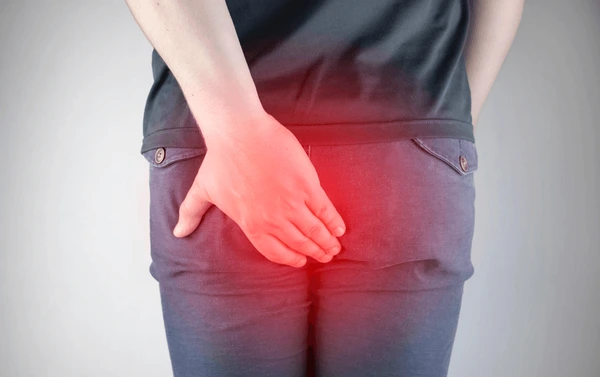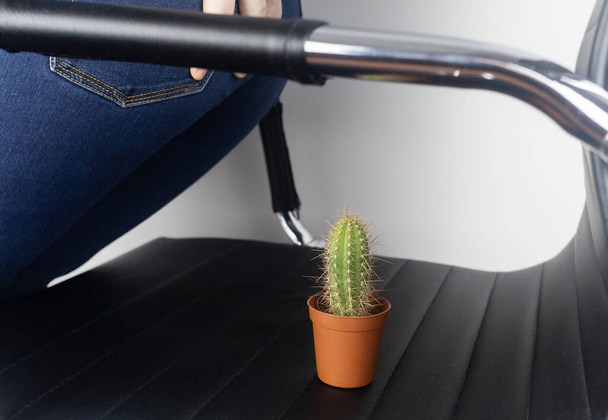Back
Rediscovering Comfort: Pelvic Floor Physical Therapy for Rectal Pain Relief
By Dr. Christine Martirez PT, DPT on 1/18/2024

Rectal pain is a discomfort that can significantly impact an individual's quality of life. Whether occasional or chronic, rectal pain requires attention and understanding to identify its root causes and implement effective treatments. Let's look at the common causes of rectal pain, various treatment options, and the role of pelvic floor physical therapy in providing relief.

Potential Causes of Rectal Pain
Anal Fissures:
Small tears in the lining of the anus, known as anal fissures, can cause sharp pain during bowel movements. Constipation and diarrhea are common contributors.Hemorrhoids:
Swollen blood vessels in the rectum or anus, known as hemorrhoids, can cause pain, itching, and discomfort. Straining during bowel movements and chronic constipation are often associated with hemorrhoids.Pelvic Floor Dysfunction:
Dysfunction of the pelvic floor muscles can lead to rectal pain. Weak or tight pelvic floor muscles may contribute to discomfort during bowel movements or at rest.Inflammatory Bowel Diseases (IBD):
Conditions such as Crohn's disease and ulcerative colitis can cause inflammation in the rectum, leading to pain, bleeding, and other symptoms.Proctalgia Fugax:
A condition characterized by sudden, severe pain in the rectal area, often occurring at night. The cause of proctalgia fugax is not well understood.

The Role of Pelvic Floor Physical Therapy:
Pelvic floor physical therapy is a specialized form of rehabilitation that focuses on the muscles, ligaments, and connective tissues in the pelvic region. These muscles play a crucial role in various bodily functions, including bowel and bladder control, sexual function, and support for pelvic organs. When these muscles are imbalanced or dysfunctional, they can contribute to conditions like rectal pain. Your pelvic floor therapist can employ the following strategies to assist in your rehabilitation process:
Comprehensive Assessment:
Pelvic floor physical therapists begin by conducting a thorough assessment of the pelvic floor muscles. This includes evaluating muscle tone, strength, and coordination. Identifying any imbalances or dysfunctions helps tailor the treatment plan to the individual's specific needs.Targeted Exercises:
Based on the assessment, therapists design a personalized exercise program to address specific issues. These exercises aim to strengthen weak muscles, relax overly tense muscles, and improve overall pelvic floor function.Biofeedback Techniques :
Biofeedback is a valuable tool used in pelvic floor physical therapy. It provides real-time information about muscle activity, allowing individuals to gain awareness and control over their pelvic floor muscles. This can be especially beneficial for those experiencing rectal pain related to muscle tension.Manual Therapy:
Hands-on techniques are employed by therapists to release tension in the pelvic floor muscles. Manual therapy helps alleviate tightness and discomfort, contributing to improved muscle function and reduced pain. This can include myofascial release, soft tissue mobilization, joint mobilization, and visceral mobilization.Posture and Behavioral Strategies:
Therapists educate individuals on proper posture and behavioral strategies to promote pelvic floor health. This includes guidance on optimal bowel habits, relaxation techniques, and lifestyle adjustments that can positively impact rectal pain.Patient Education:
Understanding the connection between pelvic floor health and rectal pain is crucial for effective management. Pelvic floor physical therapists provide education on the anatomy of the pelvic floor, contributing factors to your rectal pain, and strategies for long-term relief.
Rectal pain can be a challenging and sensitive issue, but with the right approach, relief is possible. If you're experiencing rectal pain, consulting with healthcare professionals, including pelvic floor physical therapists, can provide a personalized path to recovery and improved quality of life.
At Pelvic Health Physical Therapy, our physical therapists will provide you with a thorough evaluation to determine what the best treatment plan will be for you. We understand how inhibiting pain and stiffness can be, and we want to help get you back to comfortably living your life. We'll help lift all of your physical stresses away! Please email receptionmadison@pelvichealthnj.com to book an appointment, or call our office at 908-443-9880.
Read More:
Dry Needling for C-Section Scars and Postpartum Recovery By Dr. Christine Martirez PT, DPT on 10/15/2024 Learn how dry needling can be used for c-section scars and c-section recovery How Red Light Therapy Can Be Used to Treat Pelvic Floor Dysfunctions By Dr. Christine Martirez PT, DPT on 10/15/2024 Learn about red light therapy and how it can be used to treat pelvic floor dysfunctions
Are you ready to live pain free?
Request An Appointment